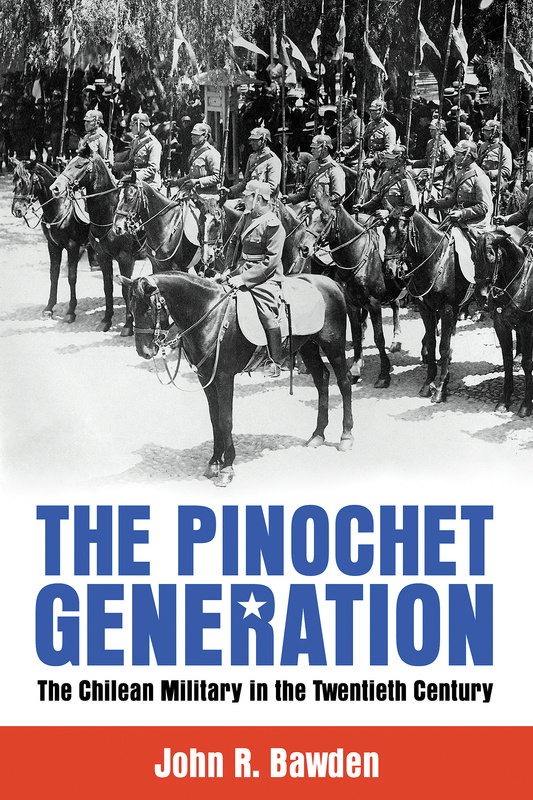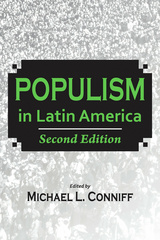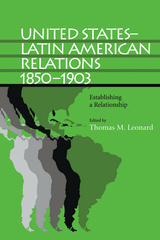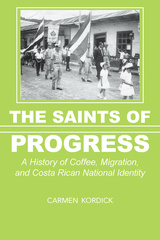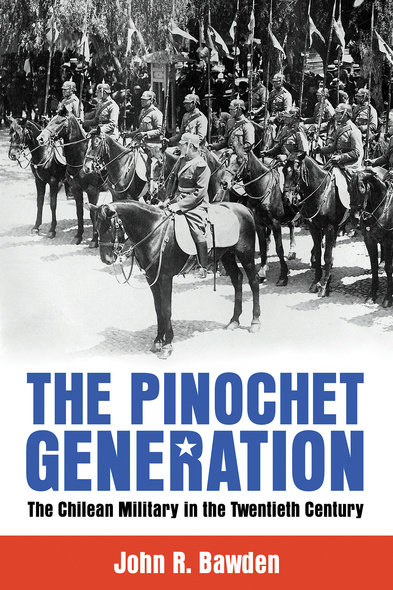
304 pages, 6 x 9
14 B&W figures - 2 maps
Paperback
Release Date:20 Apr 2021
ISBN:9780817360245
The Pinochet Generation
The Chilean Military in the Twentieth Century
By John R. Bawden; Introduction by John R. Bawden
University of Alabama Press
Weaves together the dramatic history of Chile’s complex and fraught relationship to its armed services by thorough analysis of the experiences of General Augusto Pinochet’s generation of soldiers and the beliefs and traditions that motivated their actions
Chilean soldiers in the twentieth century appear in most historical accounts, if they appear at all, as decontextualized figures or simply as a single man: Augusto Pinochet. In his incisive study The Pinochet Generation: The Chilean Military in the Twentieth Century, John R. Bawden provides compelling new insights into the era and posits that Pinochet and his men were responsible for two major transformations in Chile’s constitution as well as the political and economic effects that followed.
Determined to refocus what he sees as a “decontextualized paucity” of historical information on Chile’s armed forces, Bawden offers a new perspective to explain why the military overthrew the government in 1973 as well as why and how Chile slowly transitioned back to a democracy at the end of the 1980s. Standing apart from other views, Bawden insists that the Chilean military’s indigenous traditions and customs did more than foreign influences to mold their beliefs and behavior leading up to the 1973 coup of Salvador Allende.
Drawing from defense publications, testimonial literature, and archival materials in both the United States and Chile, The Pinochet Generation characterizes the lens through which Chilean officers saw the world, their own actions, and their place in national history. This thorough analysis of the Chilean services’ history, education, values, and worldview shows how this military culture shaped Chilean thinking and behavior, shedding light on the distinctive qualities of Chile’s armed forces, the military’s decision to depose Allende, and the Pinochet dictatorship’s resilience, repressiveness, and durability.
Bawden’s account of Chile’s vast and complex military history of the twentieth century will appeal to political scientists, historians, faculty and graduate students interested in Latin America and its armed forces, students of US–Latin American diplomacy, and those interested in issues of human rights.
Chilean soldiers in the twentieth century appear in most historical accounts, if they appear at all, as decontextualized figures or simply as a single man: Augusto Pinochet. In his incisive study The Pinochet Generation: The Chilean Military in the Twentieth Century, John R. Bawden provides compelling new insights into the era and posits that Pinochet and his men were responsible for two major transformations in Chile’s constitution as well as the political and economic effects that followed.
Determined to refocus what he sees as a “decontextualized paucity” of historical information on Chile’s armed forces, Bawden offers a new perspective to explain why the military overthrew the government in 1973 as well as why and how Chile slowly transitioned back to a democracy at the end of the 1980s. Standing apart from other views, Bawden insists that the Chilean military’s indigenous traditions and customs did more than foreign influences to mold their beliefs and behavior leading up to the 1973 coup of Salvador Allende.
Drawing from defense publications, testimonial literature, and archival materials in both the United States and Chile, The Pinochet Generation characterizes the lens through which Chilean officers saw the world, their own actions, and their place in national history. This thorough analysis of the Chilean services’ history, education, values, and worldview shows how this military culture shaped Chilean thinking and behavior, shedding light on the distinctive qualities of Chile’s armed forces, the military’s decision to depose Allende, and the Pinochet dictatorship’s resilience, repressiveness, and durability.
Bawden’s account of Chile’s vast and complex military history of the twentieth century will appeal to political scientists, historians, faculty and graduate students interested in Latin America and its armed forces, students of US–Latin American diplomacy, and those interested in issues of human rights.
The Pinochet Generation is an important counterpoint to most of the literature on the Chilean armed forces with original insights on the professional, strategic, and political views of the soldiers of the Pinochet generation.'
—Brian Loveman, author of For la Patria: Politics and the Armed Forces in Latin America and Struggle in the Countryside: Politics and Rural Labour in Chile, 1919–1973
‘ . . . John Bawden . . . introduces some crucial new insights to the interpretation of Chilean history and the motivations for the overthrow of Allende.’
—Latin American Historical Review
Bawden weaves together a careful history of Chile and its armed services with an in-depth examination of the experiences of General Augusto Pinochet’s generation. Through this lens, this study offers a valuable new perspective to explain why the military took over in 1973; governed in a determined, harsh, and extended way; and insisted on a prolonged, managed transition back to democracy at the end of the 1980s.’
—Paul W. Drake, author of Between Tyranny and Anarchy: A History of Democracy in Latin America, 1800–2006
‘John Bawden . . . introduces some crucial new insights to the interpretation of Chilean history and the motivations for the overthrow of Allende.’
—Hispanic American Historical Review
John R. Bawden is an associate professor of history at the University of Montevallo and teaches twentieth century Latin American history. His articles on the Chilean military have been published in the Journal of Latin American Studies and The Latin Americanist.
List of Illustrations
Acknowledgments
Introduction
1. Evolution of a Proud Tradition: Chile’s Armed Forces to 1931
2. First Years in Uniform, 1931–1945
3. The Gathering Storm: Postwar Politics and Institutional Frustration, 1945–1970
4. Intellectual and Professional Formation, 1945–1970
5. Salvador Allende and the Armed Forces, 1970–1973
6. Soldiers before Pinochetismo, 1973–1976
7. Defying the World and Restructuring the State, 1977–1981
8. Circling the Wagons: The Survival of the Pinochet Regime, 1982–1986
9. Mission Accomplished: The Transition to Protected Democracy, 1987–1990
Epilogue
Notes
Bibliography
Index

